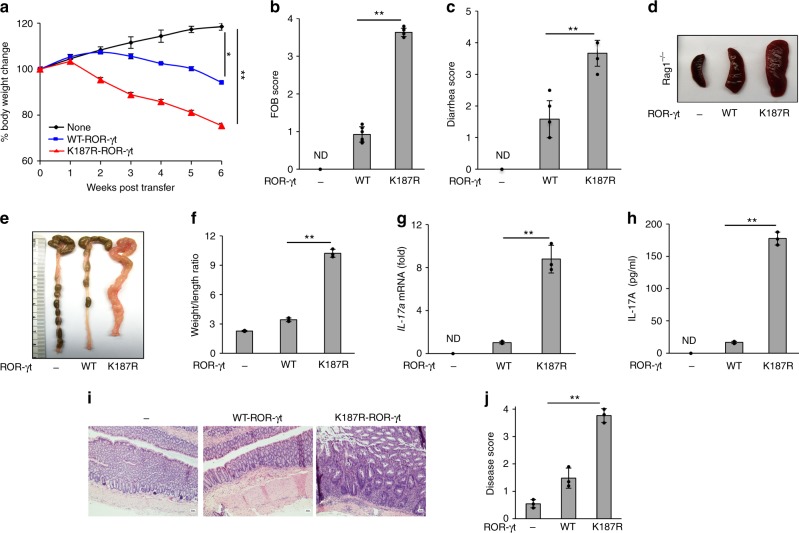Fig. 3.
Th17 cells expressing SUMOylation-defective ROR-γt induce severe colitis in mice. ROR-γt–/– CD4+ T cells transduced with lentivirus expressing WT-ROR-γt or a SUMOylation-deficient mutant ROR-γt were grown under Th17-polarizing conditions and adoptively transferred to Rag1–/– mice. Data shows a body weight, b fecal occult blood score, c diarrhea score, d spleen size, and e, f colonic weight-to-length ratio for Rag1–/–mice (n = 4 per group) given an intraperitoneal injection of ROR-γt–/– cells (None), Th17 cells expressing wild-type ROR-γt (WT-ROR-γt), or Th17 cells expressing SUMOylation-deficient mutant ROR-γt (K187R-ROR-γt) and monitored for 6 weeks. g Real-time PCR was used to analyze IL-17a mRNA. h ELISA was used to measure IL-17A secretion in the explant colon culture of Rag1–/– mice as in a–f (n = 3). Results are presented relative to those of Rag1–/– mice given ROR-γt–/– cells. i Microscopy shows H&E-stained colonic sections. j Disease scores of those sections are provided from Rag1–/– mice as in a–f (n = 3). ND: not detected. Data are from one experiment representative of three independent experiments with similar results. *p < 0.05, **p < 0.01 (two-tail t test) error bars are S.D.

